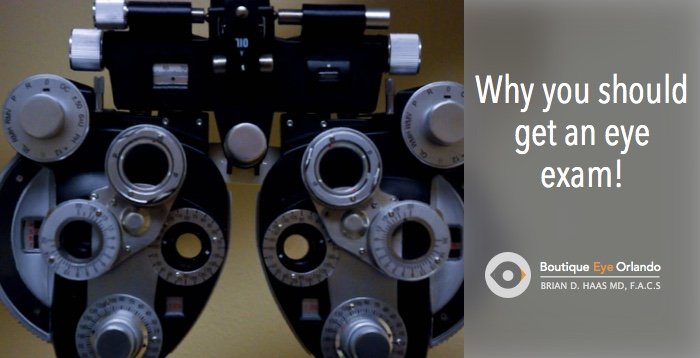I have cataracts. When should I consider cataracts surgery?
April 9, 2015Why are my pupils dilated during an eye exam?
May 27, 2015We’ll test your vision.This one, of course, is a no-brainer. We have to establish a starting point, so the first thing we’ll do is test your vision to determine what we’re working with and how it’s affecting your daily life. Some of our patients have claimed to have great vision, only to find out that their vision isn’t as good as it could be. Glasses have changed how they view the world.We’ll check for cataracts.Cataracts are small, cloud-like formations in the lens of the eye that can lead to blurred vision, glare, and other symptoms. It’s especially pronounced when driving at night. Many cataracts sufferers don’t even know that a cataract has formed, and it’s also one of the most common eye afflictions, so this is one of the first things we’ll check for.Of course, should we find a cataract, we’re well-prepared. Dr. Brian D. Haas has performed over 5,000 cataract surgeries and leads the way in using the latest technological breakthroughs to treat cataracts in the safest, gentlest way possible.
We’ll check for glaucoma.
Glaucoma’s most common symptom is an increase in the pressure inside your eye. It’s an nerve disease that’s notoriously hard to detect without proper screening, and the damage is often irreversible. It’s often accompanied by tunnel vision.
Regular eye exams are the most effective way to keep glaucoma at bay, so it’s a crucial component of an eye checkup. To check for glaucoma, we’ll take photographs and optic nerve scans. If we find it’s necessary, we’ll discuss treatment options, like eye drops or surgical choices.
We’ll check for diabetes.
The eyes are a particularly effective window into the body, especially in the case of diabetes. Because diabetes affects your body’s blood vessels, it will often manifest in the blood vessels of the eye, making regular eye exams a key component in the battle against diabetes.
During a checkup, Dr. Brian Haas will check the eye’s blood vessels, and sometimes will photograph your eye or, if more information is necessary, perform a retinal scan. If further action is needed, Dr. Haas will work directly with your primary care physician to carry out a treatment plan.
We’ll check for macular degeneration.
Macular degeneration, one of the most common forms of blindness in older adults, results in the loss of central vision, but the first sign is usually straight lines becoming distorted. Many patients don’t even recognize the symptoms in the early stages. Again, after a visual exam, Dr. Haas will take photos and perform a retinal scan to diagnose potential macular degeneration.
We’ll check for other abnormalities.
Dry eyes, allergies, or anything else that might be irritating your eyes or affecting your vision… our eye exams are called “comprehensive” for a reason.
For some conditions, like age related macular degeneration or diabetes, it may also be necessary to dilate the eyes to get a better look.
Wrap-up
Of course, many eye exams result in a clean bill of health, and the majority of problems that we find are minor. For those, we can often simply prescribe a new set of glasses (and we have an extensive collection of boutique and designer eyeglasses to choose from right in our downtown Orlando office).
For the rare instance in which a more serious abnormality is found, early detection is often critical to effective treatment. Simply put, it’s easier to stop and fill up on gas before you get stranded in the middle of the highway. Much easier.
So if it’s been awhile since your last eye checkup, give us a call (407-841-1490) to schedule an appointment. It’s fast, it’s easy, and your eyes will thank you.


